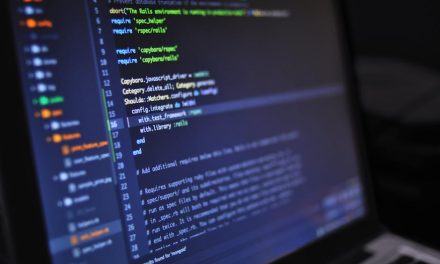Table of Contents
- Introduction
- Setting Clear Expectations for Remote Employees
- Implementing Regular Check-ins and Feedback Sessions
- Utilizing Technology for Remote Performance Monitoring
- Providing Opportunities for Skill Development and Training
- Recognizing and Rewarding Remote Employee Achievements
- Encouraging Collaboration and Team Building Activities
- Addressing Remote Employee Well-being and Work-life Balance
- Evaluating and Adjusting Remote Work Policies and Procedures
- Q&A
- Conclusion
“Empowering remote teams to excel through effective performance management.”
Introduction
Enhancing remote work through performance management is crucial for ensuring productivity and accountability in a virtual work environment. By implementing effective performance management strategies, organizations can set clear expectations, provide regular feedback, and support employee development to optimize remote work performance. This approach helps to maintain high levels of engagement, motivation, and collaboration among remote teams, ultimately leading to improved overall business outcomes.
Setting Clear Expectations for Remote Employees
Remote work has become increasingly popular in recent years, with more and more companies embracing the flexibility and benefits it offers. However, managing remote employees can present unique challenges, particularly when it comes to setting clear expectations and ensuring that performance standards are met. In order to enhance remote work and maximize productivity, it is essential for organizations to implement effective performance management strategies.
Setting clear expectations for remote employees is crucial for ensuring that they understand their roles and responsibilities, as well as the goals and objectives they are expected to achieve. Without clear expectations, remote employees may struggle to prioritize their tasks, leading to confusion and inefficiency. By clearly outlining expectations from the outset, managers can help remote employees stay focused and on track, ultimately improving their performance and productivity.
One effective way to set clear expectations for remote employees is to establish key performance indicators (KPIs) that align with the organization’s overall goals and objectives. KPIs provide a measurable way to track progress and evaluate performance, giving remote employees a clear understanding of what is expected of them. By regularly reviewing KPIs with remote employees, managers can provide feedback and guidance to help them stay on target and make any necessary adjustments to their work.
In addition to setting KPIs, it is important for managers to communicate regularly with remote employees to ensure that expectations are being met. Regular check-ins via video calls, phone calls, or emails can help remote employees feel supported and connected to their team, while also providing an opportunity for managers to provide feedback and address any concerns. By maintaining open lines of communication, managers can help remote employees feel valued and motivated to perform at their best.
Another important aspect of setting clear expectations for remote employees is to establish a schedule for regular performance reviews. Performance reviews provide an opportunity for managers and remote employees to discuss progress, address any challenges, and set goals for the future. By conducting regular performance reviews, managers can ensure that remote employees are meeting expectations and identify any areas for improvement.
In conclusion, setting clear expectations for remote employees is essential for enhancing remote work and maximizing productivity. By establishing KPIs, communicating regularly, and conducting performance reviews, managers can help remote employees understand their roles and responsibilities, stay focused on their goals, and ultimately perform at their best. With effective performance management strategies in place, organizations can create a positive and productive remote work environment that benefits both employees and the organization as a whole.
Implementing Regular Check-ins and Feedback Sessions
Remote work has become increasingly popular in recent years, with more and more companies embracing the flexibility and efficiency it offers. However, managing remote teams comes with its own set of challenges, including ensuring that employees are staying productive and engaged. One effective way to enhance remote work is through performance management, which involves setting clear expectations, providing regular feedback, and offering support to help employees succeed.
Implementing regular check-ins and feedback sessions is a crucial aspect of performance management for remote teams. These sessions provide an opportunity for managers to touch base with their employees, discuss progress on projects, address any concerns or challenges, and provide feedback on performance. By having regular check-ins, managers can stay informed about their team’s work and offer guidance and support as needed.
One of the key benefits of regular check-ins and feedback sessions is that they help to build trust and communication between managers and employees. When employees feel that their managers are invested in their success and are available to provide support and guidance, they are more likely to feel motivated and engaged in their work. Regular check-ins also provide an opportunity for employees to voice any concerns or challenges they may be facing, allowing managers to address these issues in a timely manner.
In addition to building trust and communication, regular check-ins and feedback sessions also help to keep employees accountable for their work. By setting clear expectations and regularly checking in on progress, managers can ensure that employees are staying on track and meeting deadlines. Feedback sessions also provide an opportunity to recognize and reward employees for their hard work and achievements, which can help to boost morale and motivation.
Another benefit of regular check-ins and feedback sessions is that they allow for ongoing performance evaluation and improvement. By providing feedback on a regular basis, managers can help employees identify areas for growth and development, as well as provide guidance on how to improve their performance. This ongoing feedback loop can help employees to continuously improve their skills and performance, leading to better overall results for the team.
When implementing regular check-ins and feedback sessions for remote teams, it is important to establish a consistent schedule and format for these meetings. This could include weekly or bi-weekly check-ins via video conference or phone call, as well as regular feedback sessions to discuss performance and progress. It is also important to create a safe and open environment where employees feel comfortable sharing their thoughts and concerns with their managers.
In conclusion, implementing regular check-ins and feedback sessions is a critical component of performance management for remote teams. These sessions help to build trust and communication, keep employees accountable, and provide ongoing evaluation and improvement. By investing in regular check-ins and feedback sessions, companies can enhance remote work and ensure that their teams are staying productive, engaged, and successful.
Utilizing Technology for Remote Performance Monitoring

Remote work has become increasingly popular in recent years, with more and more companies embracing the flexibility and benefits it offers. However, managing remote employees can present unique challenges, particularly when it comes to monitoring performance. In order to ensure that remote workers are meeting expectations and delivering results, companies are turning to technology for remote performance monitoring.
One of the key benefits of utilizing technology for remote performance monitoring is the ability to track and measure productivity in real-time. With the use of tools such as time tracking software, managers can see exactly how much time remote employees are spending on specific tasks and projects. This not only helps to ensure that work is being completed in a timely manner, but also allows for more accurate performance evaluations.
In addition to tracking productivity, technology can also be used to monitor the quality of work being produced by remote employees. For example, companies can use project management software to track progress on tasks and projects, as well as to provide feedback and guidance to remote workers. This helps to ensure that work is being completed to a high standard and allows for any issues or concerns to be addressed in a timely manner.
Another benefit of utilizing technology for remote performance monitoring is the ability to provide remote employees with access to training and development opportunities. With the use of online learning platforms and virtual training sessions, remote workers can continue to develop their skills and knowledge, even when working from a different location. This not only helps to improve performance, but also demonstrates a commitment to employee growth and development.
Furthermore, technology can also be used to facilitate communication and collaboration among remote teams. With the use of video conferencing tools, instant messaging platforms, and project management software, remote employees can easily stay connected and work together on projects. This not only helps to improve productivity, but also fosters a sense of teamwork and camaraderie among remote workers.
Overall, utilizing technology for remote performance monitoring can help companies to enhance the effectiveness of their remote work arrangements. By tracking productivity, monitoring work quality, providing access to training and development opportunities, and facilitating communication and collaboration, companies can ensure that remote employees are meeting expectations and delivering results. This not only benefits the company, but also helps to support the success and well-being of remote workers.
In conclusion, technology plays a crucial role in enhancing remote work through performance management. By leveraging the power of technology to track productivity, monitor work quality, provide training and development opportunities, and facilitate communication and collaboration, companies can ensure that remote employees are able to perform at their best. As remote work continues to grow in popularity, it is essential for companies to embrace technology as a tool for remote performance monitoring in order to maximize the benefits of remote work arrangements.
Providing Opportunities for Skill Development and Training
Remote work has become increasingly popular in recent years, with more and more companies embracing the flexibility and efficiency it offers. However, managing remote teams comes with its own set of challenges, including ensuring that employees are performing at their best and have opportunities for skill development and training. Performance management is crucial in this context, as it helps to set clear expectations, provide feedback, and support employees in reaching their full potential.
One key aspect of enhancing remote work through performance management is providing opportunities for skill development and training. This not only benefits individual employees but also contributes to the overall success of the team and the organization as a whole. By investing in the growth and development of remote employees, companies can ensure that they have the skills and knowledge needed to excel in their roles and contribute to the company’s goals.
One way to provide opportunities for skill development and training is through regular performance reviews. These reviews allow managers to assess the strengths and weaknesses of remote employees, identify areas for improvement, and set goals for future development. By having open and honest conversations about performance, managers can help employees understand where they stand and what they need to do to improve.
In addition to performance reviews, companies can also offer training programs and resources to help remote employees develop new skills and enhance their existing ones. This could include online courses, webinars, workshops, or other learning opportunities that can be accessed remotely. By investing in training and development, companies show their commitment to supporting the growth and success of their remote employees.
Another way to enhance remote work through performance management is to provide opportunities for employees to take on new challenges and responsibilities. This not only helps to keep remote employees engaged and motivated but also allows them to expand their skills and knowledge in a practical setting. By giving employees the chance to stretch themselves and take on new projects, companies can help them grow professionally and contribute more effectively to the team.
Furthermore, companies can encourage remote employees to seek out opportunities for skill development and training on their own. This could involve providing access to resources such as online courses, books, or industry events, or offering financial support for employees who want to pursue further education or certification. By empowering employees to take control of their own development, companies can foster a culture of continuous learning and growth within the remote team.
Overall, enhancing remote work through performance management requires a proactive approach to providing opportunities for skill development and training. By investing in the growth and development of remote employees, companies can ensure that they have the skills and knowledge needed to excel in their roles and contribute to the success of the team. Through regular performance reviews, training programs, and opportunities for new challenges, companies can support the professional growth of their remote employees and create a more engaged and productive remote workforce.
Recognizing and Rewarding Remote Employee Achievements
Remote work has become increasingly popular in recent years, with more and more companies embracing the flexibility and benefits it offers. However, managing remote employees can present unique challenges, particularly when it comes to recognizing and rewarding their achievements. In order to enhance remote work and ensure that employees feel valued and motivated, it is essential for organizations to implement effective performance management strategies.
One key aspect of performance management for remote employees is the need for clear and measurable goals. Without the structure of a traditional office environment, remote workers may struggle to stay focused and motivated. By setting specific, achievable goals and regularly monitoring progress, managers can help remote employees stay on track and feel a sense of accomplishment.
In addition to setting goals, it is important for managers to provide regular feedback to remote employees. This feedback should be constructive and specific, highlighting both areas of strength and areas for improvement. By offering feedback in a timely manner, managers can help remote employees understand how their work is contributing to the overall goals of the organization and make any necessary adjustments to improve performance.
Recognizing and rewarding remote employee achievements is another crucial aspect of performance management. Remote workers may feel isolated and disconnected from their colleagues, making it even more important for managers to acknowledge their hard work and contributions. This can be done through a variety of methods, such as public recognition in team meetings, personalized thank-you notes, or even small tokens of appreciation.
In addition to recognizing achievements, it is also important for managers to reward remote employees for their hard work. This can take the form of bonuses, promotions, or other incentives that demonstrate the organization’s appreciation for their efforts. By rewarding remote employees for their achievements, managers can help boost morale and motivation, leading to increased productivity and job satisfaction.
Another important aspect of performance management for remote employees is the need for regular check-ins and communication. Remote workers may feel disconnected from their managers and colleagues, making it essential for managers to schedule regular one-on-one meetings to discuss goals, progress, and any challenges or concerns. By maintaining open lines of communication, managers can help remote employees feel supported and engaged in their work.
In conclusion, enhancing remote work through effective performance management is essential for ensuring that remote employees feel valued, motivated, and engaged. By setting clear goals, providing regular feedback, recognizing and rewarding achievements, and maintaining open lines of communication, managers can help remote employees thrive in a virtual work environment. Ultimately, a strong performance management strategy can lead to increased productivity, job satisfaction, and overall success for remote employees and the organization as a whole.
Encouraging Collaboration and Team Building Activities
Remote work has become increasingly popular in recent years, with more and more companies embracing the flexibility and convenience it offers to employees. However, managing remote teams comes with its own set of challenges, particularly when it comes to encouraging collaboration and team building activities. In order to enhance remote work and ensure that teams are working together effectively, it is important for companies to implement performance management strategies that focus on fostering a sense of teamwork and camaraderie among employees.
One of the key ways to encourage collaboration among remote teams is to create opportunities for team building activities. These activities can help employees get to know each other better, build trust, and develop strong working relationships. Virtual team building activities, such as online games, virtual happy hours, and team challenges, can be a fun and effective way to bring remote teams together and foster a sense of camaraderie.
In addition to team building activities, companies can also use performance management tools to track and measure team collaboration. By setting clear goals and expectations for teamwork, managers can help remote teams stay focused and motivated to work together towards a common goal. Performance management software can provide valuable insights into team dynamics, allowing managers to identify areas where collaboration may be lacking and take steps to address any issues.
Another important aspect of enhancing remote work through performance management is providing regular feedback and recognition to employees. Remote workers can often feel isolated and disconnected from their colleagues, so it is important for managers to make an effort to acknowledge their hard work and contributions. By providing regular feedback and recognition, managers can help remote employees feel valued and motivated to continue working towards the team’s goals.
Furthermore, companies can also encourage collaboration among remote teams by creating a culture of open communication and transparency. By fostering an environment where employees feel comfortable sharing their ideas and opinions, companies can help remote teams work together more effectively and achieve better results. Performance management tools can help facilitate communication among remote teams, allowing employees to collaborate on projects, share feedback, and stay connected with their colleagues.
Overall, enhancing remote work through performance management requires a proactive approach to fostering collaboration and teamwork among remote teams. By implementing team building activities, setting clear goals for teamwork, providing regular feedback and recognition, and promoting open communication, companies can help remote employees feel more connected and engaged in their work. With the right performance management strategies in place, companies can ensure that remote teams are working together effectively towards a common goal, ultimately leading to increased productivity and success for the organization as a whole.
Addressing Remote Employee Well-being and Work-life Balance
Remote work has become increasingly popular in recent years, with many companies embracing the flexibility and convenience it offers to employees. However, managing remote employees comes with its own set of challenges, particularly when it comes to ensuring their well-being and work-life balance. In order to address these issues, companies are turning to performance management strategies to enhance the remote work experience for their employees.
One of the key challenges of remote work is the potential for employees to feel isolated and disconnected from their colleagues. This can have a negative impact on their well-being and overall job satisfaction. To combat this, companies are implementing performance management systems that focus on regular communication and feedback. By setting clear expectations and providing regular feedback, managers can help remote employees feel more connected to their team and organization.
Another challenge of remote work is the blurring of boundaries between work and personal life. Without a physical separation between the two, remote employees may find it difficult to switch off from work and relax. This can lead to burnout and decreased productivity. To address this issue, companies are using performance management tools to help employees set boundaries and prioritize their well-being. By encouraging employees to take breaks, set boundaries around their work hours, and prioritize self-care, companies can help remote employees maintain a healthy work-life balance.
Performance management can also play a role in supporting remote employees’ mental health. The isolation and lack of social interaction that can come with remote work can take a toll on employees’ mental well-being. By incorporating mental health check-ins and resources into their performance management systems, companies can help remote employees feel supported and connected. This can include providing access to mental health resources, encouraging employees to take time off when needed, and promoting a culture of openness and support around mental health issues.
In addition to supporting well-being and work-life balance, performance management can also help remote employees stay motivated and engaged in their work. By setting clear goals and expectations, providing regular feedback, and recognizing and rewarding achievements, managers can help remote employees stay focused and motivated. This can help prevent feelings of disengagement and burnout, and ensure that remote employees are able to perform at their best.
Overall, performance management plays a crucial role in enhancing the remote work experience for employees. By focusing on communication, feedback, well-being, and engagement, companies can help remote employees feel connected, supported, and motivated in their work. This can lead to increased productivity, job satisfaction, and overall well-being for remote employees. As remote work continues to become more prevalent, it is essential for companies to prioritize performance management strategies that support the unique challenges and opportunities of remote work. By doing so, companies can create a positive and fulfilling remote work experience for their employees.
Evaluating and Adjusting Remote Work Policies and Procedures
Remote work has become increasingly popular in recent years, with more and more companies offering their employees the flexibility to work from home. While this can offer numerous benefits, such as increased productivity and work-life balance, it also presents challenges in terms of performance management. Evaluating and adjusting remote work policies and procedures is essential to ensure that employees are able to perform at their best, even when working outside of the traditional office environment.
One of the key aspects of performance management in a remote work setting is setting clear expectations. Without the structure of a physical office, it can be easy for employees to feel disconnected and unsure of what is expected of them. By clearly outlining goals, deadlines, and performance metrics, managers can help remote workers stay on track and understand what is required of them. Regular check-ins and feedback sessions can also help to keep employees motivated and engaged, as well as provide opportunities for managers to address any issues or concerns that may arise.
Another important aspect of performance management in a remote work setting is monitoring and evaluating employee performance. This can be challenging when employees are not physically present in the office, but there are tools and technologies available that can help managers track productivity and performance. Time tracking software, project management tools, and communication platforms can all be used to monitor employee progress and ensure that work is being completed on time and to a high standard. Regular performance reviews can also help to identify areas for improvement and provide opportunities for professional development.
In addition to monitoring performance, it is also important to provide support and resources to remote employees. Working from home can be isolating, and employees may struggle with feelings of loneliness or disconnection. By offering opportunities for social interaction, such as virtual team meetings or online chat groups, managers can help remote workers feel more connected to their colleagues and the company as a whole. Providing access to training and development opportunities can also help remote employees stay engaged and motivated, as well as improve their skills and performance.
Finally, it is important to regularly evaluate and adjust remote work policies and procedures to ensure that they are effective and meeting the needs of both employees and the company. This may involve soliciting feedback from remote workers, conducting surveys or focus groups, and analyzing performance data to identify areas for improvement. By being proactive and responsive to the needs of remote employees, managers can create a work environment that is conducive to high performance and employee satisfaction.
In conclusion, enhancing remote work through performance management requires a proactive and strategic approach. By setting clear expectations, monitoring performance, providing support and resources, and regularly evaluating and adjusting policies and procedures, managers can help remote employees perform at their best and contribute to the success of the company. With the right tools and strategies in place, remote work can be a successful and rewarding experience for both employees and employers alike.
Q&A
1. How can performance management enhance remote work?
By setting clear goals and expectations, providing regular feedback, and offering support and resources to remote employees.
2. What are some key components of performance management for remote workers?
Regular check-ins, goal setting, feedback mechanisms, training and development opportunities, and recognition for achievements.
3. How can technology be used to support performance management for remote employees?
Through tools like performance management software, virtual communication platforms, and data analytics to track and measure performance.
4. What are some challenges of implementing performance management for remote workers?
Lack of face-to-face interaction, difficulty in monitoring productivity, ensuring consistent feedback, and maintaining employee engagement.
5. How can managers ensure accountability and transparency in performance management for remote employees?
By setting clear expectations, tracking progress towards goals, providing regular feedback, and fostering open communication.
6. What role does communication play in performance management for remote workers?
Effective communication is essential for setting expectations, providing feedback, addressing challenges, and maintaining employee engagement.
7. How can performance management help remote employees stay motivated and engaged?
By recognizing achievements, providing opportunities for growth and development, offering support and resources, and fostering a positive work culture.
8. What are some best practices for implementing performance management for remote workers?
Setting clear goals and expectations, providing regular feedback, offering training and development opportunities, recognizing achievements, and fostering open communication.
Conclusion
Enhancing remote work through performance management is crucial for ensuring productivity, accountability, and employee engagement. By setting clear goals, providing regular feedback, and utilizing technology to track progress, organizations can effectively manage remote teams and drive success. Effective performance management in a remote work setting can lead to improved communication, increased motivation, and ultimately, better business outcomes.





